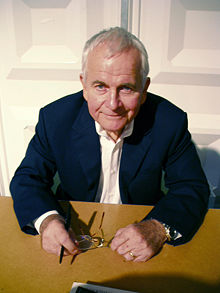
Sir Philip Anthony Hopkins is a Welsh actor. One of Britain's most recognisable and prolific actors, he is known for his performances on the screen and stage. Hopkins has received numerous accolades, including two Academy Awards, four BAFTA Awards, two Primetime Emmy Awards, and a Laurence Olivier Award. He has also received the Cecil B. DeMille Award in 2005 and the BAFTA Fellowship for lifetime achievement in 2008. He was knighted by Queen Elizabeth II for his services to drama in 1993.

Bilbo Baggins is the title character and protagonist of J. R. R. Tolkien's 1937 novel The Hobbit, a supporting character in The Lord of the Rings, and the fictional narrator of many of Tolkien's Middle-earth writings. The Hobbit is selected by the wizard Gandalf to help Thorin and his party of Dwarves reclaim their ancestral home and treasure, which has been seized by the dragon Smaug. Bilbo sets out in The Hobbit timid and comfort-loving and, through his adventures, grows to become a useful and resourceful member of the quest.

The Lord of the Rings: The Fellowship of the Ring is a 2001 epic high fantasy adventure film directed by Peter Jackson from a screenplay by Fran Walsh, Philippa Boyens, and Jackson, based on 1954's The Fellowship of the Ring, the first volume of the novel The Lord of the Rings by J. R. R. Tolkien. The film is the first installment in The Lord of the Rings trilogy. It features an ensemble cast including Elijah Wood, Ian McKellen, Liv Tyler, Viggo Mortensen, Sean Astin, Cate Blanchett, John Rhys-Davies, Billy Boyd, Dominic Monaghan, Orlando Bloom, Christopher Lee, Hugo Weaving, Sean Bean, Ian Holm, and Andy Serkis.

Michael Christopher Sheen is a Welsh actor. After training at London's Royal Academy of Dramatic Art (RADA), he worked mainly in theatre throughout the 1990s with stage roles in Romeo and Juliet (1992), Don't Fool with Love (1993), Peer Gynt (1994), The Seagull (1995), The Homecoming (1997), and Henry V (1997). He received Olivier Awards nominations for his performances in Amadeus (1998) at the Old Vic, Look Back in Anger (1999) at the National Theatre and Caligula (2003) at the Donmar Warehouse.
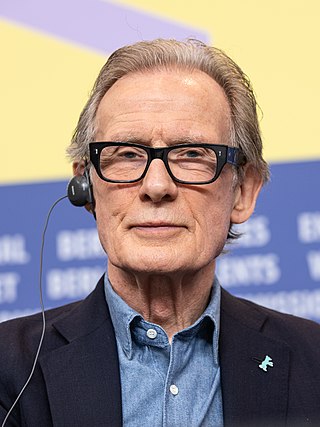
William Francis Nighy is a British actor. Known for his work in numerous stage, television and film productions, he has received several awards including a British Academy Film Award and a Golden Globe Award, and also has had nominations for an Academy Award, a Tony Award and a Laurence Olivier Award.

Martin John Christopher Freeman is an English actor. Among other accolades, he has won two Emmy Awards, a BAFTA Award and a Screen Actors Guild Award, and has been nominated for a Golden Globe Award.
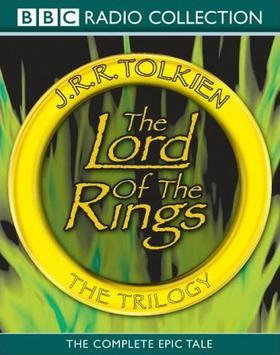
The Lord of the Rings 1981 radio series is an epic fantasy adventure for BBC Radio 4, adapted from J. R. R. Tolkien's 1955 novel of the same name. It is the third radio dramatisation of the novel, following a 1955 BBC Radio adaptation, and a 1979 adaptation for NPR in the United States.

John Ronald Simm is an English actor, director, and musician. He is best known for playing Sam Tyler in Life on Mars, the Master in Doctor Who, and DS Roy Grace in Grace. His other television credits include State of Play, The Lakes, Crime and Punishment, Exile, Prey, and Cracker. His film roles include Wonderland, Everyday, Boston Kickout, Human Traffic and 24 Hour Party People. He has twice been nominated for the BAFTA Award for Best Actor

Phyllis Logan is a Scottish actress, widely known for her roles as Lady Jane Felsham in Lovejoy (1986–1993) and Mrs Hughes in Downton Abbey (2010–2015). She won the BAFTA Award for Most Promising Newcomer for the 1983 film Another Time, Another Place. Her other film appearances include Secrets & Lies (1996), Shooting Fish (1997), Downton Abbey (2019) and Misbehaviour (2020).

Best Actor in a Supporting Role is a British Academy Film Award presented annually by the British Academy of Film and Television Arts (BAFTA) to recognize an actor who has delivered an outstanding supporting performance in a film.
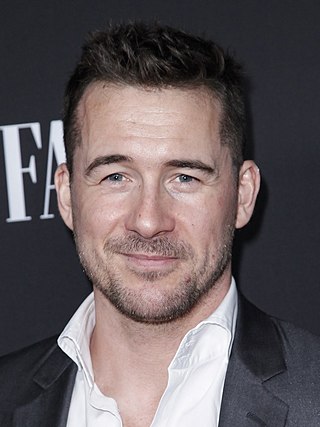
Barry Sloane is an English actor. He has appeared in numerous television shows, and in the BAFTA Award–winning television films Pleasureland and The Mark of Cain. In 2006, Sloane made his West End debut in Willy Russell's Blood Brothers. In December 2007, he began playing serial killer Niall Rafferty in Channel 4's Hollyoaks, which earned him three award nominations.

The Hobbit is a series of three fantasy adventure films directed by Peter Jackson. The films are subtitled An Unexpected Journey (2012), The Desolation of Smaug (2013), and The Battle of the Five Armies (2014). The films are based on J. R. R. Tolkien's 1937 novel The Hobbit, but much of the trilogy was inspired by the appendices to his 1954–55 The Lord of the Rings, which expand on the story told in The Hobbit. Additional material and new characters were created specially for the films. The series is a prequel to Jackson's The Lord of the Rings film trilogy.
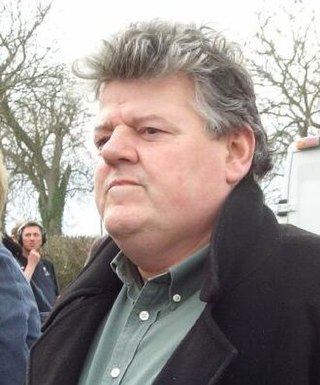
Anthony Robert McMillan, known professionally as Robbie Coltrane, was a Scottish actor. He gained worldwide recognition in the 2000s for playing Rubeus Hagrid in the Harry Potter film series. He was appointed an OBE in the 2006 New Year Honours by Queen Elizabeth II for his services to drama. In 1990, Coltrane received the Evening Standard British Film Award – Peter Sellers Award for Comedy. In 2011, he was honoured for his "outstanding contribution" to film at the British Academy Scotland Awards.

Kiran Jethalal Shah is a British actor and stunt double.
Frodo Baggins is a fictional character in J. R. R. Tolkien's writings and one of the protagonists in The Lord of the Rings. Frodo is a hobbit of the Shire who inherits the One Ring from his cousin Bilbo Baggins, described familiarly as "uncle", and undertakes the quest to destroy it in the fires of Mount Doom in Mordor. He is mentioned in Tolkien's posthumously published works, The Silmarillion and Unfinished Tales.
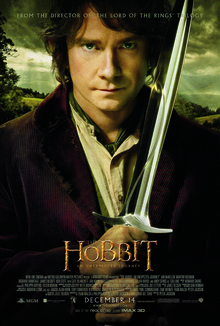
The Hobbit: An Unexpected Journey is a 2012 epic high fantasy adventure film directed by Peter Jackson from a screenplay by Fran Walsh, Philippa Boyens, Jackson, and Guillermo del Toro. It is based on the 1937 novel The Hobbit by J. R. R. Tolkien. The Hobbit trilogy is the first instalment in acting as a prequel to Jackson's The Lord of the Rings trilogy.

The Hobbit: The Battle of the Five Armies is a 2014 epic high fantasy adventure film directed by Peter Jackson from a screenplay by Fran Walsh, Philippa Boyens, Jackson, and Guillermo del Toro. It is based on the 1937 novel The Hobbit by J. R. R. Tolkien. It is the sequel to 2013's The Hobbit: The Desolation of Smaug as well as the final instalment in The Hobbit trilogy, acting as a prequel to Jackson's The Lord of the Rings trilogy.
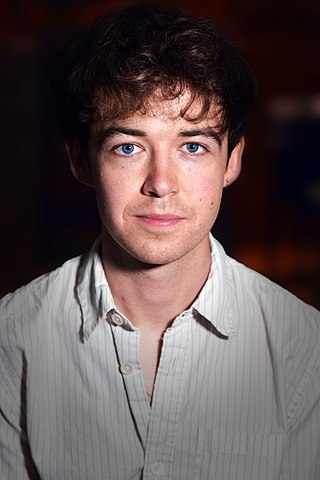
Alexander Jonathan Lawther is an English actor, writer, and director. He made his professional acting debut originating the role of John Blakemore in Sir David Hare's South Downs in the West End. He made his feature film debut playing a young Alan Turing in the Academy Award-winning film The Imitation Game (2014), for which he received the London Film Critics' Circle Award for "Young British Performer of the Year" and was declared one of BAFTA's 2015 Breakthrough Brits.
